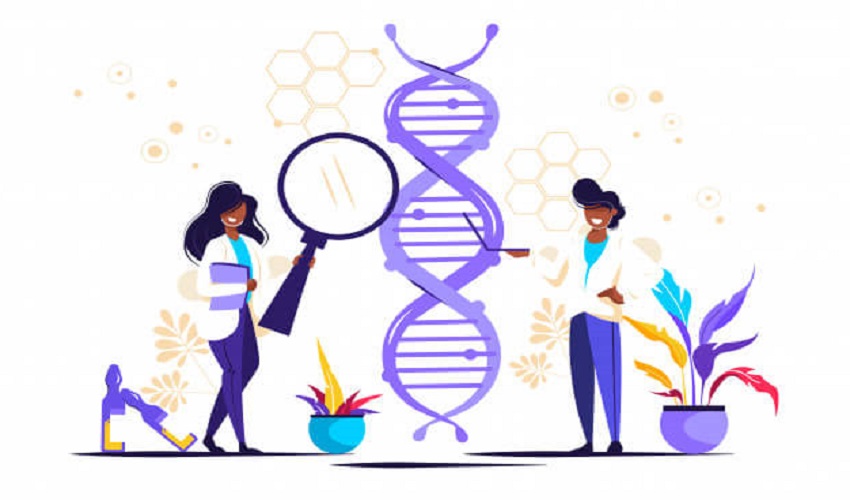
Depression, often referred to as the “silent epidemic” of the modern era, affects millions of people worldwide. It is a complex and multifaceted mental health condition that can have a profound impact on one’s quality of life. Understanding the roots of depression is essential for both prevention and effective treatment.
In this blog post, we will delve into the various factors that contribute to depression, from genetic predisposition to environmental influences.
1. Genetic predisposition
Research has shown that genetics play a significant role in the development of depression. If you have a family history of depression, you may be at a higher risk of experiencing it yourself. Specific genes have been linked to an increased susceptibility to depression, although it’s important to note that genetics alone do not determine whether an individual will develop depression. Rather, they interact with environmental factors to influence the likelihood of the condition.
2. Neurochemical imbalance
Neurotransmitters are chemicals in the brain that transmit signals between nerve cells. Imbalances in neurotransmitters, such as serotonin, dopamine, and norepinephrine, have been associated with depression. Serotonin, in particular, is often referred to as the “feel-good” neurotransmitter and plays a crucial role in regulating mood. When there is a deficiency in serotonin levels, it can contribute to the onset of depressive symptoms.
3. Hormonal changes
Hormonal fluctuations can also be a root cause of depression. For instance, women may experience depression during hormonal transitions such as puberty, pregnancy, postpartum, and menopause. These changes in hormone levels can affect mood regulation and contribute to depressive symptoms.
4. Early life experiences
Childhood trauma, neglect, abuse, or adverse childhood experiences (ACEs) can leave lasting emotional scars and increase the risk of depression later in life. The stress and emotional turmoil associated with these experiences can disrupt healthy emotional development and coping mechanisms.
5. Stress and chronic stress
Stress is a natural response to challenging situations, but chronic stress can be a significant contributor to depression. Ongoing stressors, such as work-related stress, financial troubles, or relationship issues, can lead to persistent feelings of sadness, hopelessness, and despair.
6. Social isolation
Human beings are inherently social creatures, and social connections are vital for emotional well-being. Loneliness, lack of social support, and feelings of isolation can increase the risk of depression. In today’s fast-paced and digitally connected world, genuine human connection can sometimes be lacking.
7. Environmental factors
The environment in which we live can impact our mental health. Living in environments with high levels of pollution, noise, or limited access to green spaces can negatively affect our psychological well-being. Urban dwellers, for example, may face higher levels of stress and a greater risk of depression due to the hustle and bustle of city life.
8. Substance abuse
Substance abuse, including alcohol and drug addiction, is closely linked to depression. These substances can lead to chemical imbalances in the brain and exacerbate depressive symptoms. It’s often a vicious cycle, as individuals may turn to substances as a way to cope with their depressive feelings.
9. Chronic Illness
Living with a chronic illness, like Hashimoto’s disease, can be really tough. It’s not just the physical challenges that can be overwhelming. Dealing with this kind of illness can also affect your mental health. That’s why it’s important for doctors to think about how patients are feeling emotionally, not just physically.
If you’re in Logan, Utah, and you have Hashimoto’s disease, there are ways to help you feel better emotionally. You can get proper treatment for Hashimoto’s disease, join support groups with people who understand what you’re going through, and talk to a mental health therapist. These steps can make a big difference in dealing with the sadness and other tough feelings that often come with chronic illness.
10. Medication and medical treatments
Certain medications, including some prescription drugs, may have depressive side effects. Additionally, medical treatments like chemotherapy can lead to feelings of depression. It’s crucial for healthcare professionals to monitor and address these side effects to ensure the overall well-being of their patients.
Conclusion
Depression is a complex condition with roots that extend from genetics to environmental factors. While some individuals may be more genetically predisposed to depression, it’s often a combination of these factors that leads to its development. Recognizing these roots and understanding their interplay is crucial for addressing and managing depression effectively.
If you or someone you know is experiencing symptoms of depression, it’s essential to seek help and support from mental health professionals. Depression is treatable, and with the right guidance and treatment, individuals can find their way toward recovery and a brighter future. Remember, you are not alone in this journey, and there is hope for a better tomorrow.
